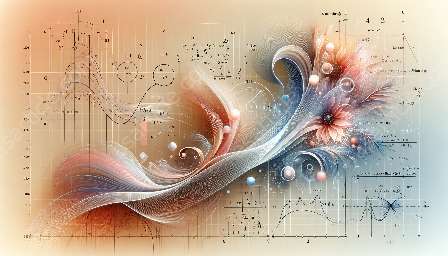Correlation and regression analysis are fundamental concepts in mathematics, statistics, and applied sciences. These concepts form the backbone of data analysis and provide valuable insights into the relationships between variables, making them crucial tools for researchers, scientists, and analysts.
The Fundamentals of Correlation and Regression
Correlation analysis is a statistical technique used to measure the strength and direction of the relationship between two or more variables. It helps to determine whether a relationship exists at all, and if so, the nature and magnitude of that relationship. On the other hand, regression analysis allows us to understand how the value of one variable changes when the value of another variable changes.
In mathematics, correlation is often represented using the Pearson correlation coefficient, which ranges from -1 to 1. The closer the value is to 1, the stronger the positive correlation, while a value close to -1 indicates a strong negative correlation. A value near 0 suggests little to no linear relationship between the variables. Regression analysis, on the other hand, is commonly represented using the equation of a line (y = mx + b) or other regression models, such as polynomial regression or logistic regression.
Real-World Applications
Correlation and regression analysis have numerous real-world applications across a wide range of disciplines. In economics, these techniques are used to analyze the relationship between variables such as inflation and unemployment rates. In environmental science, researchers utilize these methods to understand the impact of climate change on ecosystems. In medicine, regression analysis helps in predicting the effects of a treatment on patients based on various factors.
Correlation vs. Causation
It is important to note the distinction between correlation and causation. Correlation simply measures the strength and direction of a relationship between variables, while causation asserts that one variable directly influences the other. It's crucial to interpret correlation results carefully and not to automatically assume causation based solely on a correlation.
Mathematical Foundations
The mathematical foundations of correlation and regression analysis lie in statistical theory and calculus. Understanding these foundations requires a solid grasp of probability, random variables, and distributions. Furthermore, familiarity with matrix algebra, linear algebra, and optimization techniques is essential in building regression models and interpreting their coefficients and predictions.
Data Collection and Analysis
Before conducting correlation and regression analysis, thorough data collection and preprocessing are essential. In applied sciences, researchers often gather observational or experimental data and perform exploratory data analysis to understand the distribution and characteristics of their variables. This process may involve visualizing the data through scatter plots and histograms, calculating summary statistics, and identifying potential outliers or influential data points.
Advanced Techniques
As technology and computational power continue to advance, more sophisticated techniques have emerged to enhance correlation and regression analysis. These include robust regression to handle outliers, time series regression for temporal data, and Bayesian regression for incorporating prior knowledge and uncertainty into the analysis.
Challenges and Considerations
While correlation and regression analysis offer valuable insights, they also present challenges. One such challenge is multicollinearity, where independent variables in a regression model are highly correlated with each other. This can lead to inflated standard errors and unreliable coefficient estimates. Additionally, issues such as heteroscedasticity (unequal variance of errors) and model specification errors require careful consideration when conducting regression analysis.
Conclusion
Correlation and regression analysis form the bedrock of statistical methods and play a pivotal role in uncovering relationships in data across various scientific domains. A solid understanding of the mathematical and statistical foundations, combined with awareness of their applications and limitations, allows for a robust and meaningful interpretation of the results obtained from correlation and regression analysis.











































